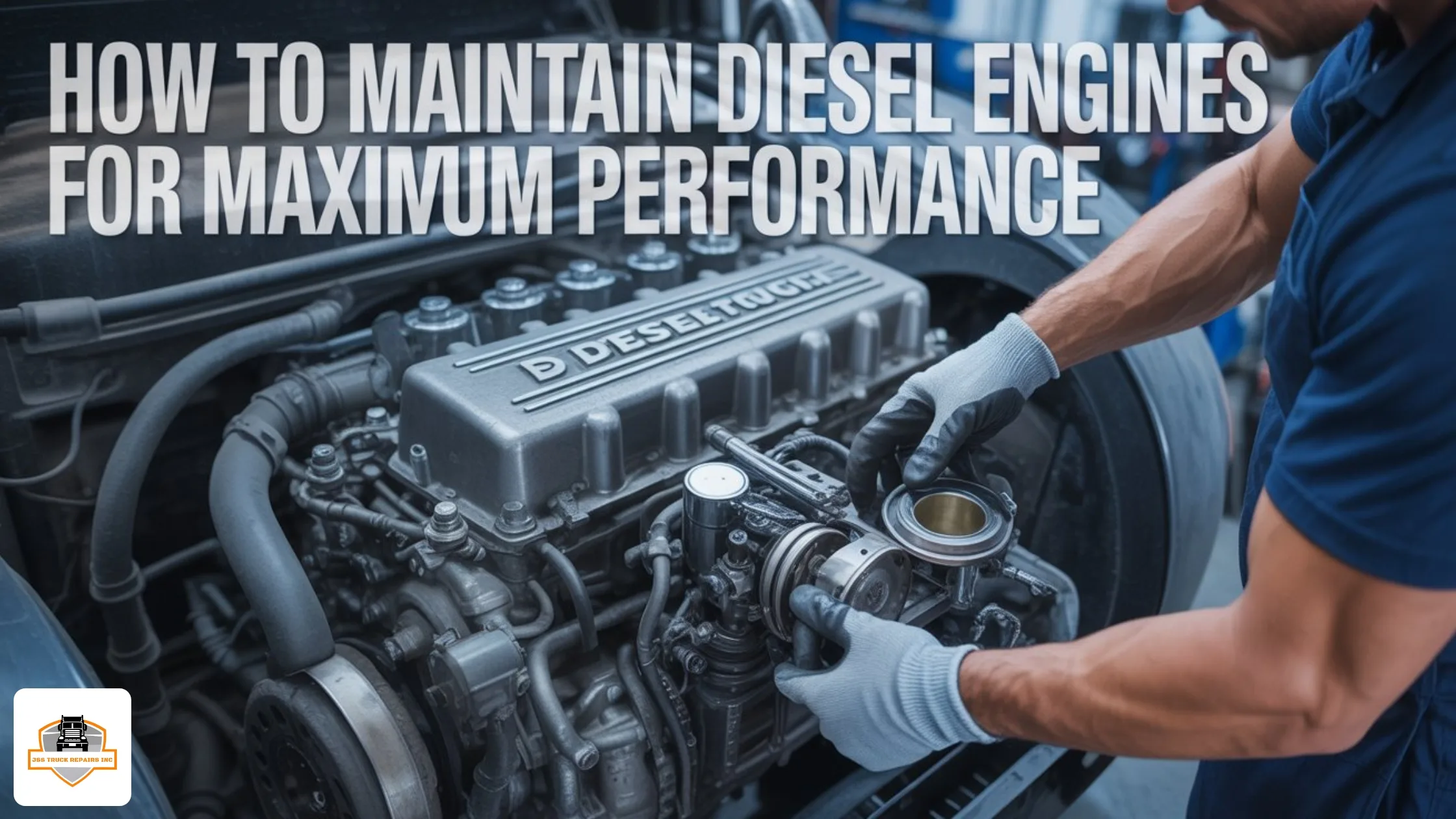A truck’s engine is the heart of the vehicle, responsible for keeping it running smoothly and efficiently. Without proper care, the engine can wear out faster, leading to costly repairs and unexpected breakdowns. However, with the right maintenance routine, you can significantly extend the lifespan of your truck’s engine. Here’s how you can ensure your engine stays in peak condition for years to come.
Essential Maintenance Tips for a Long-Lasting Truck Engine
1. Perform Regular Oil Changes
A truck’s engine relies on clean oil to lubricate its moving parts and prevent overheating. Over time, oil collects dirt and debris, making it less effective. Regular oil changes help maintain optimal engine performance and reduce wear and tear.
Tips for Oil Changes:
- Follow the manufacturer’s recommendations for oil change intervals.
- Use high-quality oil suitable for your truck’s engine type.
- Check oil levels frequently to prevent low oil-related damage.
2. Monitor and Replace Air Filters
A clean air filter ensures a truck’s engine receives the right amount of airflow for combustion. A clogged filter restricts airflow, forcing the engine to work harder, which can lead to reduced efficiency and increased wear.
Maintenance Tips:
- Inspect air filters regularly and replace them as needed.
- Use high-performance air filters for better efficiency.
- Check for signs of excessive dirt, which indicates it’s time for a replacement.

3. Maintain the Cooling System
An overheated truck’s engine can suffer severe damage. The cooling system, which includes the radiator, coolant, and water pump, plays a crucial role in temperature regulation.
How to Maintain It:
- Regularly check coolant levels and top off if necessary.
- Flush the radiator and replace coolant as recommended by the manufacturer.
- Inspect the water pump and radiator for leaks or damage.
4. Keep an Eye on the Fuel System
A well-maintained fuel system ensures that the truck’s engine receives clean fuel for efficient combustion. Contaminated fuel or a clogged fuel filter can lead to performance issues.
Fuel System Maintenance:
- Use high-quality diesel or gasoline to prevent buildup.
- Replace fuel filters regularly to keep contaminants out.
- Clean fuel injectors periodically for smooth operation.
5. Check and Replace Spark Plugs (For Gasoline Engines)
Worn-out spark plugs can lead to misfires, reduced fuel efficiency, and engine strain. Replacing them on time helps keep the truck’s engine running efficiently.
Tips for Spark Plug Maintenance:
- Follow the manufacturer’s schedule for spark plug replacement.
- Use high-quality plugs suited for your truck’s engine.
- Look for signs of wear, such as rough idling or reduced acceleration.
6. Inspect the Timing Belt and Chain
A truck’s engine depends on a properly functioning timing belt or chain to synchronize engine components. A broken timing belt can cause severe internal damage.
What to Do:
- Replace the timing belt at the manufacturer’s recommended intervals.
- Check for cracks or wear and replace it before failure occurs.
- Ensure proper tension for smooth engine operation.
7. Change Transmission Fluid as Needed
The transmission works alongside the truck’s engine to transfer power efficiently. Old or contaminated transmission fluid can cause overheating and damage components.
Transmission Care Tips:
- Regularly check transmission fluid levels.
- Change fluid as recommended by the manufacturer.
- Look for signs of leaks or slipping gears, which indicate issues.
8. Warm Up the Engine Before Driving
Starting a truck’s engine and immediately driving off can cause excessive wear. Giving it time to warm up allows oil to circulate properly.
Best Practices:
- Let the engine idle for a minute before driving in cold weather.
- Avoid revving the engine immediately after starting.
- Drive gently until the engine reaches optimal temperature.
9. Avoid Excessive Idling
Idling for long periods wastes fuel and puts unnecessary strain on a truck’s engine. Modern engines are designed to be fuel-efficient, but prolonged idling can cause carbon buildup.
How to Prevent Issues:
- Turn off the engine if idling for more than a few minutes.
- Use auxiliary power sources if necessary.
- Reduce warm-up idling by driving smoothly instead.
10. Maintain the Exhaust System
A properly functioning exhaust system helps the truck’s engine run efficiently by expelling harmful gases. A clogged or damaged exhaust can reduce performance.
Exhaust Maintenance Tips:
- Check for leaks or rust in the exhaust system.
- Replace clogged catalytic converters when necessary.
- Ensure oxygen sensors are functioning correctly.
11. Use the Right Fuel and Additives
A truck’s engine performs best when it runs on high-quality fuel. Low-grade fuel can cause deposits and reduce efficiency.
Fuel Optimization Tips:
- Use fuel that meets the manufacturer’s specifications.
- Add fuel system cleaners to remove carbon deposits.
- Avoid overfilling the tank to prevent fuel system issues.
12. Follow a Preventative Maintenance Schedule
Sticking to a regular maintenance schedule helps detect potential problems before they escalate, ensuring the truck’s engine remains in top condition.
What to Include:
- Routine inspections by a qualified mechanic.
- Regular diagnostic checks to catch hidden issues.
- Promptly addressing minor repairs before they worsen.
Conclusion
A truck’s engine is a significant investment, and proper maintenance ensures it serves you reliably for years. By following these essential care tips—such as regular oil changes, cooling system upkeep, and fuel system maintenance—you can prevent premature wear and avoid costly repairs. Implementing a proactive approach not only improves engine longevity but also enhances overall truck performance and efficiency. Start taking better care of your truck’s engine today, and enjoy a smoother, more reliable ride on the road.








